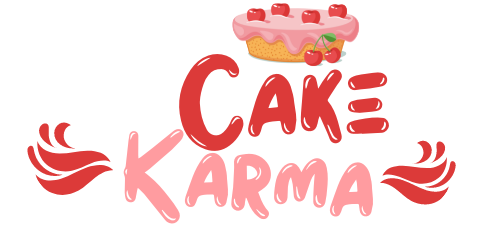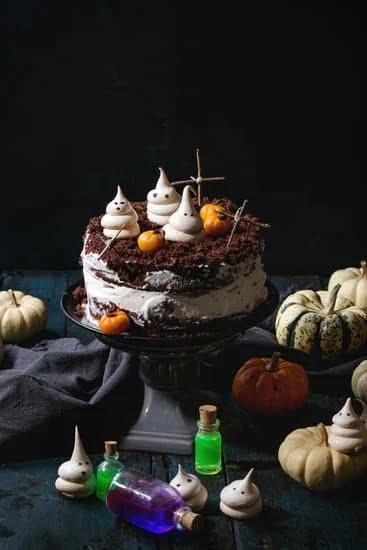Are you passionate about baking and love creating beautiful works of edible art? If so, you may have considered a career as a professional cake decorator.
In this introductory section, we will explore the world of cake decoration, the skills required to succeed in this career, and how to become a professional cake decorator. From mastering the basics of baking to understanding the artistry of cake decoration, there are various steps and considerations involved in pursuing this creative and rewarding profession.
To become a professional cake decorator, you must first understand what exactly it entails. It goes beyond simply frosting a cake; it involves creating intricate designs, sculpting figurines, and using various techniques to transform cakes into stunning masterpieces. A professional cake decorator possesses not only exceptional baking and decorating skills but also creativity, attention to detail, and the ability to work under pressure.
In the following sections, we will delve into the foundational skills needed for becoming a professional cake decorator, including mastering the basics of baking and pastry making. We will also explore the artistry of cake decoration, education and training options for aspiring decorators, building a strong portfolio, networking and marketing strategies within the industry, business and legal considerations when running a cake decorating business, and the importance of continuous learning to remain competitive in this dynamic field.
Whether you dream of owning your own bakery or working as a sought-after cake artist for events and celebrations, this article will guide you on your journey to becoming a successful professional cake decorator.
The Basics of Baking
Becoming a professional cake decorator requires a strong foundation in the basics of baking and pastry making. Understanding the fundamentals of baking is essential for creating high-quality cakes that are not only visually appealing but also delicious. Whether you’re interested in working for a bakery, starting your own cake decorating business, or pursuing a career in the culinary arts, mastering the basics of baking is the first step on your journey to becoming a professional cake decorator.
One of the key aspects of the basics of baking is learning about different types of ingredients, such as flour, sugar, butter, eggs, and leavening agents, and how they interact with each other to create various textures and flavors in baked goods. Additionally, aspiring professional cake decorators should familiarize themselves with various baking techniques, such as creaming method, folding method, and sponge method, as well as understanding the science behind these techniques.
This knowledge will allow decorators to troubleshoot common baking issues and create consistently great results.
Moreover, understanding pastry making is also crucial for anyone looking to become a professional cake decorator. Pastry making involves creating different types of doughs and batters used for cakes, tarts, pastries, and more.
Learning about pastry making will provide decorators with a solid understanding of how to prepare the base elements for their cake creations. By mastering these fundamental skills in baking and pastry making, individuals can set themselves up for success as they embark on their journey to becoming professional cake decorators.
Art of Cake Decorating
If you have a passion for creativity and a love for desserts, then exploring the art of cake decorating may be the perfect career path for you. As a professional cake decorator, you will have the opportunity to bring joy to people’s lives through your edible works of art. This section will delve into the artistry of cake decoration, including various techniques, tools, and materials used in the industry.
Techniques in Cake Decoration
One of the most exciting aspects of becoming a professional cake decorator is mastering various techniques to create stunning designs on cakes. From piping intricate designs with buttercream or royal icing to crafting delicate sugar flowers and fondant figures, there are endless possibilities when it comes to cake decoration. Aspiring decorators should focus on learning and practicing different techniques to build a diverse skill set that will appeal to a wide range of clients.
Tools and Materials
The tools and materials used in cake decoration play a crucial role in creating beautiful and visually appealing cakes. Essential tools include piping bags and tips, offset spatulas, fondant smoothers, modeling tools, and more.
When it comes to materials, different types of fondant, gum paste, edible colors, dragees, luster dusts, and edible glitters are just some of the items that are commonly used by professional cake decorators. Familiarizing yourself with these tools and materials is essential for success in the industry.
Developing Your Signature Style
As you embark on your journey to become a professional cake decorator, it’s important to develop your own unique style that sets you apart from others in the field. Whether it’s mastering a specific technique or incorporating your signature design elements into your cakes, having a distinct style will help you stand out and attract clients who appreciate your personal touch.
Experimenting with different techniques and materials can help you discover your own artistic voice within the world of cake decoration.
By exploring the artistry of cake decoration through various techniques, tools, materials used in the industry is crucial in determining how successful one can become as they aspire towards becoming professional cake decorators. It is essential that as an aspiring professional marketer one has knowledge about these different areas.
through continuous learning one should always incorporate much-required skills as required since being an expert requires constant renewal on how best approaches could enhance desired results as per client details provided.
Education and Training
Becoming a professional cake decorator requires a solid foundation of education and training in the art of baking and pastry making. To get started on this path, there are several options to consider when it comes to obtaining the necessary skills and knowledge.
Here are some ways on how to become a professional cake decorator:
- Culinary School: Attending a reputable culinary school can provide you with comprehensive training in baking and pastry arts. Look for programs that offer specialized courses or concentrations in cake decoration and design.
- Certification Programs: Many culinary institutions and professional organizations offer certification programs specifically tailored to cake decorating. These programs often cover advanced techniques, design principles, and business aspects of the industry.
- Apprenticeships: A hands-on apprenticeship or mentoring program with an experienced cake decorator can be invaluable in gaining practical experience and learning the tricks of the trade. This real-world training can complement formal education and provide insight into the day-to-day workings of a cake decorating business.
Additionally, attending workshops, seminars, and conferences related to cake decoration can also be beneficial for honing your skills and staying updated on industry trends. Continuing education through online courses or specialized training programs can also help expand your knowledge base and expertise as a professional cake decorator.
In the competitive world of cake decoration, having a strong educational background and ongoing training is essential for success in this creative field. Whether through traditional culinary school programs, specialized certification courses, or practical apprenticeships, investing in your education will set you on the path to becoming a skilled and sought-after professional cake decorator.
Building a Portfolio
Building a strong portfolio is essential for anyone aspiring to become a professional cake decorator. A portfolio acts as a visual resume, showcasing your skills and creativity in cake decoration. It’s important to create a portfolio that accurately represents your abilities and style while also capturing the attention of potential clients or employers.
Quality Photography
When creating your portfolio, it’s crucial to invest in quality photography. High-resolution images that showcase your cakes from different angles and in various lighting conditions will allow potential clients to appreciate the details and intricacy of your work. Consider hiring a professional photographer or learning basic photography skills to ensure that your portfolio stands out.
Showcasing Versatility
In addition to high-quality photos, it’s important to showcase a variety of cake decorating styles and techniques in your portfolio. Whether it’s fondant work, piping, sugar crafting, or sculpting, demonstrating versatility in your skills will attract a wider range of clients who are looking for different types of cakes for various occasions.
Client Testimonials
Including client testimonials in your portfolio can add credibility and build trust with potential clients. Positive feedback from satisfied customers can reassure new clients about the quality of your work and customer service. Be sure to ask for permission from previous clients before including their testimonials in your portfolio.
Building a strong portfolio is an ongoing process that requires continuous effort and improvement. By paying attention to detail, showcasing versatility, and including client testimonials, you can create a portfolio that effectively showcases your cake decorating skills and attracts potential clients or employers. This is an important step in becoming a successful professional cake decorator.
Networking and Marketing
In the competitive world of cake decoration, networking and marketing play a crucial role in the success of a professional cake decorator. Building relationships with potential clients, other professionals in the industry, and suppliers can open doors to new opportunities and collaborations. Whether you are looking to land a job at a bakery, secure corporate clients for special events, or start your own cake decorating business, effective networking can be the key to success.
Attending industry events, trade shows, and local meetups can provide invaluable opportunities to connect with fellow professionals and potential clients. By showcasing your skills and creativity at these events, you can attract attention and build a reputation as a talented cake decorator. Additionally, joining professional organizations related to baking and pastry arts can provide access to valuable resources, mentorship, and job opportunities within the industry.
In addition to networking, marketing is essential for establishing your brand as a professional cake decorator. Creating an online presence through social media platforms such as Instagram, Facebook, and Pinterest can help you showcase your portfolio, engage with potential clients, and expand your reach. Maintaining an updated website with high-quality photos of your work and client testimonials can also help establish credibility and attract new business.
Networking goes hand-in-hand with marketing efforts; as you make connections within the industry, you can leverage those relationships to promote your services and expand your client base. Mastering the art of networking and marketing is essential for anyone looking to become a successful professional cake decorator. By putting time and effort into building relationships and promoting your skills effectively, you will increase your chances of thriving in this competitive but rewarding industry.
Business and Legal Considerations
As a professional cake decorator, it is essential to understand the business and legal considerations involved in running a successful cake decorating business. This includes pricing your products and services, creating contracts with clients, and adhering to legal requirements for operating a business. By mastering these aspects of the industry, you can ensure that your cake decorating business is not only creatively fulfilling but also financially viable.
When starting a cake decorating business, one of the most important considerations is pricing your products and services. It’s essential to conduct market research to determine the going rates for similar products in your area. Additionally, consider factors such as the cost of ingredients, overhead expenses, and the time it takes to create each cake. By accurately pricing your cakes and decorations, you can ensure that your business remains profitable while remaining competitive in the market.
Another crucial aspect of the business side of cake decoration is creating contracts with clients. Clearly outlining terms such as payment schedules, delivery or pickup details, and any specific design requests can help avoid misunderstandings and disputes down the line. Having a legally sound contract in place can protect both you and your clients and provide peace of mind for all parties involved.
In addition to pricing and contracts, understanding legal requirements for running a cake decorating business is vital. This may include obtaining necessary permits or licenses, adhering to health and safety regulations when working with food products, and understanding tax obligations as a small business owner. Staying informed about these legal considerations will help you operate your cake decorating business ethically and within the boundaries of the law.
| Key Considerations | Description |
|---|---|
| Pricing | Conduct market research to determine appropriate prices for products and services. |
| Contracts | Create clear, legally binding contracts with clients to outline terms and expectations. |
| Legal Requirements | Understand permits, health regulations, licensing requirements when running a cake decorating business. |
Continuous Learning
As a professional cake decorator, it is essential to stay updated with the latest trends, techniques, and tools in the industry. Continuous learning not only allows you to remain competitive but also helps you enhance your skills and expand your creativity.
One of the best ways to stay updated is by attending workshops, classes, or seminars specifically focused on cake decoration. These events often feature renowned cake decorators who share their expertise and insights, providing valuable knowledge that can be applied to your own work.
Furthermore, staying connected with other professionals in the industry through social media platforms or professional associations can be an excellent way to learn about new trends and techniques in cake decoration. By following influential cake decorators and engaging in discussions with peers, you can gain valuable insights into what is currently popular in the industry and how you can incorporate these trends into your own work.
In addition to keeping up with trends and techniques, it is also crucial to stay updated on the latest tools and equipment used in cake decoration. Advancements in technology have led to innovative tools that can simplify or enhance the cake decorating process. Attending trade shows or exhibitions dedicated to baking and cake decoration is a great way to discover new products and equipment that can elevate your craft as a professional cake decorator.
| Resource | Description |
|---|---|
| Workshops/Classes/Seminars | Attending events featuring renowned cake decorators |
| Social Media/Professional Associations | Staying connected with professionals for insights into new trends |
Conclusion
In conclusion, the journey to becoming a professional cake decorator is an exciting and rewarding one. Throughout this article, we have explored the essential skills, education, and training required to succeed in this creative and competitive industry.
From mastering the basics of baking to understanding the art of cake decorating and building a portfolio, aspiring cake decorators have a wide range of resources and opportunities available to them. While it may seem daunting at first, with dedication and passion, anyone can pursue their dream of becoming a professional cake decorator.
For those interested in pursuing this career path, it is important to remember that continuous learning is key. Just as in any artistic field, staying updated with new trends, techniques, and tools in the cake decoration industry is crucial for success.
This includes seeking out workshops, attending industry events, and connecting with fellow professionals to expand knowledge and expertise. By continuously honing your craft and staying inspired by others in the field, you can stay competitive as a professional cake decorator.
Lastly, networking and marketing are also vital components for building a successful career in cake decoration. Building relationships with potential clients or employers through social media platforms or local events can open up numerous opportunities.
Additionally, understanding the business side of running a cake decorating business is essential for financial stability and growth. By considering pricing strategies, creating solid contracts, and adhering to legal requirements for operating a business, aspiring cake decorators can set themselves up for long-term success in this fulfilling profession.
Frequently Asked Questions
What Qualifications Do You Need to Be a Cake Decorator?
To be a cake decorator, one typically needs a high school diploma or its equivalent. Many cake decorators also pursue formal training through culinary or baking and pastry arts programs. Additionally, gaining experience through internships or entry-level positions can be beneficial.
How Hard Is It to Become a Cake Decorator?
Becoming a cake decorator can be challenging but not excessively difficult. It requires creativity, attention to detail, and the ability to work with various tools and techniques. Most importantly, it requires practice and dedication to honing one’s skills in cake decorating.
What Is a Professional Cake Decorator Called?
A professional cake decorator is often called a pastry chef or a confectioner. These titles encompass the expertise in creating and decorating various types of pastries, cakes, and desserts with skill and artistry. Whether working in bakeries, restaurants, or as independent contractors, professional cake decorators are valued for their talents in creating visually appealing and delicious baked goods.

Welcome to our cake decorating blog! My name is Destiny Flores, and I am the proud owner of a cake decorating business named Cake Karma. Our mission is to provide delicious, beautiful cakes for all occasions. We specialize in creating custom cakes that are tailored specifically to each customer’s individual needs and tastes.





